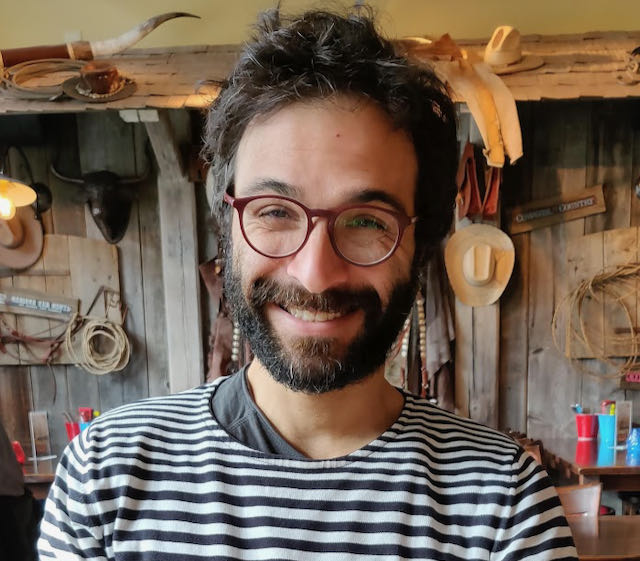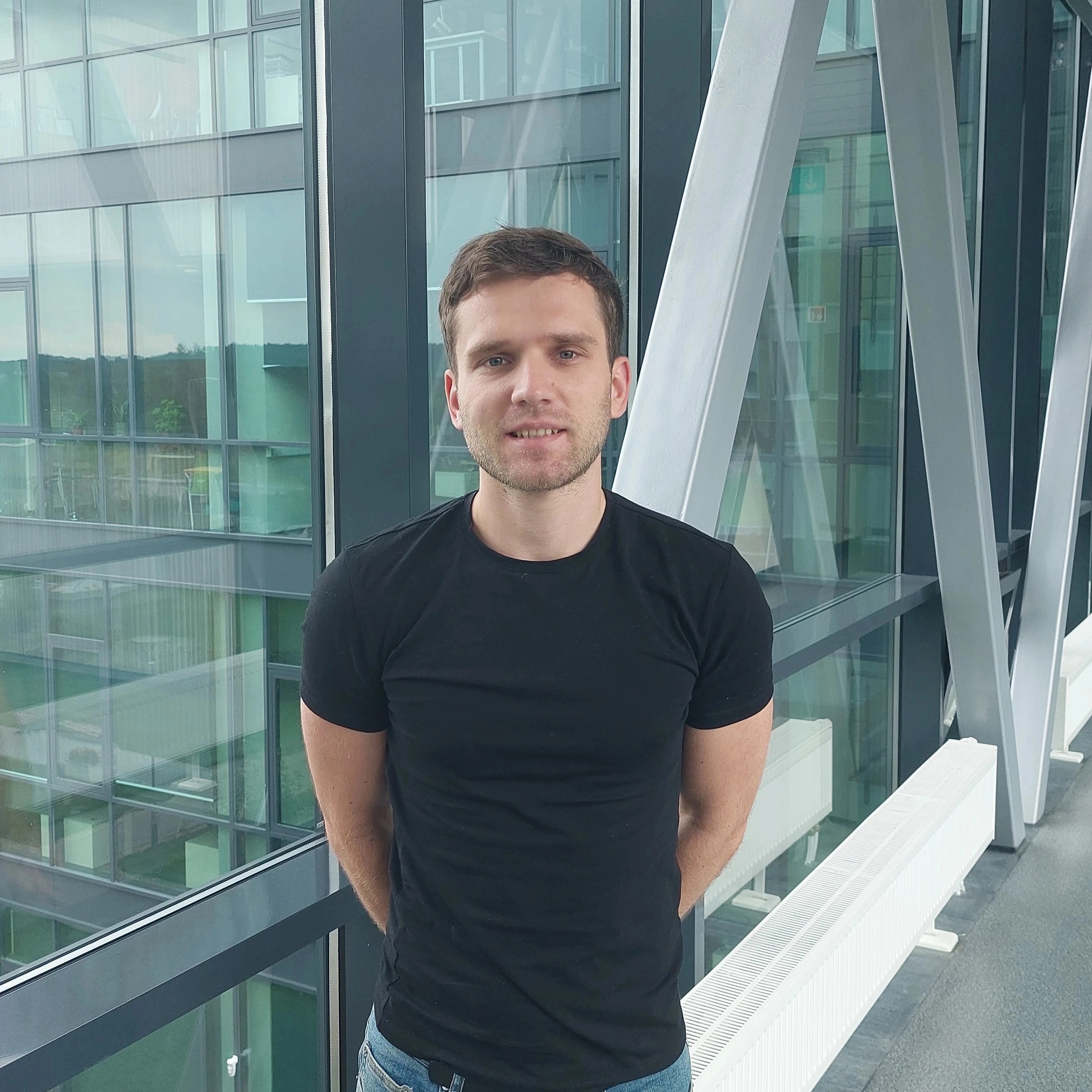Research
Clustered regularly interspaced short palindromic repeats (CRISPR) are arrays of short (ca. 30bp) DNA direct repeats (DR) arranged in an alternating fashion with spacers, which are instead different oligos, of ca. 25-70bp. CRISPR arrays have so far been reported in ca. 50% of bacteria and most archea. The spacers in the array are mobile genetic elements (MGE) which have been acquired upon bacteriophage invasions, and therefore represent a historical record of previous infections. Upstream of the CRISPR array sits a CRISPR-associate (Cas) gene: when a phage injects its DNA through the membrane, Cas genes recruit the appropriate transcribed spacer sequence from the CRISPR array. Such sequence acts as a guide to bind the complex to the viral genome and allows the Cas nuclease to produce a double-strand break, neutralising the viral threat. CRISPR-Cas is a formidable example of acquired immune response.
In the context of genome sequencing, CRISPR research efforts have been based on short reads and, to date, the potential of long-read sequencing technologies for CRISPR-Cas applications has not been throughly assessed.
Our research group, established in September 2021 and led by Dr Giancarlo Russo, focuses on two aspects associated with CRISPR-Cas systems. On the one hand, we investigate the long-term co-evolution of bacteria and phages in vivo, both in isolation and embedded in their natural microbial communities. On the other hand, we explore epigenetic and post-transcriptional changes in cancer cells and their regulating effects on preferential isoforms’ usage, and how such phenotypes are affected by epigenetic editing. The common thread is to leverage the potential of long-read sequencing technologies to identify DNA and RNA modifications and dissect alternative splicing in the context of CRISPR-Cas research.
Group webpage
Group Members
 |
Giancarlo Russo, Ph.D.
Group Leader
Following my Master's Degree in Italy and my Ph.D. at Cardiff University, UK, (both in Applied Mathematics), in 2009 I started working on the applications of computational methods in life science. From 2009 to 2011 I held a Research Associate position at the Biostatistics and Bioinformatics Unit of the MRC Centre for Psychiatric Medicine in Cardiff, with a focus on Genome-Wide Association Studies.
In the last part of 2011, I moved to Nagoya, Japan, as a visiting researcher at the University Hospital, where we worked on the genetics of schizophrenia.
For the following ten years, until July 2021, I have been a senior scientist at the Functional Genomics Center in Zurich, Switzerland, where I have taken part in almost 200 different research projects spanning the whole spectrum of high throughput -omics applications.
|
|

|
Lina Aitmanaitė, Ph.D.
Researcher
In 2012, I received a Bachelor's degree in Molecular Biology from Vilnius University. My thesis was about the seasonal polyphenism of Daphnia Pulex. Following my undergraduate studies, I enrolled in a molecular biology master's program. I worked on the thermostabilization of T7 RNA polymerase in vitro as part of my Master's thesis. I then completed my internship at the Erasmus Medical Centre in Rotterdam, where I was able to collaborate with Prof. Vincenzo Bonifati's research on Parkinson's disease. Soon after, I began my Biochemistry Ph.D. studies at Vilnius University. My dissertation research focused on the molecular processes of dsRNA LA and M virus maintenance in yeast cells. The interactions between the LA and M viruses were an important part of my research. In 2021, I successfully defended my PhD thesis, "Virus Compatibility in Saccharomyces cerevisiae LA and M Virus Systems."
|
 |
Karolis Širmonaitis
Junior Researcher
+37064456373
In 2020, I have obtained a Master’s degree in Medical Biotechnology at Wageningen University and Research in The Netherlands. During my studies there, I have worked in a laboratory of applied microbiology which is led by John Van Der Oost, who is a renowned scientist known as one of the pioneers of Crispr-Cas9. My master’s thesis project in this group was aimed at developing a novel, homology based, DNA cloning method.
After finishing my thesis project I moved to Switzerland, where I completed an internship in a Biotech company called ‘’Amal Therapeutics’’. The goal of this company is to develop therapeutic vaccines against cancer. During my internship at ‘’Amal therapeutics’’, I have worked in an in vitro department, where I developed and implemented a vaccine potency evaluation protocol on a newly adopted cell line.
Soon after, I returned to Lithuania and started working for “ThermoFisher Scientific” as a junior Scientist. While working at this position, I was involved in qPCR and Digital PCR product development and release. In the end of 2021, I joined VU GMC-EMBL PI. Currently, I’m working on a project which explores the relationship between CRISPR-Cas adaptation and genome-wide methylation patterns.
|
 |
Kornelija Gelūnaitė
Ph.D. Student
+37064082011
In 2021, I have graduated with BSc (Hons) degree in IBMS accredited Biomedical Sciences at the University of the West of England (UWE), in Bristol, United Kingdom. In my final year, I have completed a research project module and wrote a thesis on understanding hypoxia and RAS-ERK signalling in pancreatic cancer and identifying novel therapeutic targets.
After completion of BSc, I have continued my education in UWE and in 2022, I have purchased Master of Research (MRes) degree, where I have worked on targeting GPCRs in the pancreatic cancer in autophagy and hypoxia in collaboration with Dr. Alexander Greenhough in CRIBBS lab.
Currently, I’m undertaking Ph.D. in Biology at Vilnius University, LSC as part of EMBL team with a project that focuses on full-length, targeted sequencing of CRISPR-Cas systems in microbial ecosystems.
|
 |
Domantas Palavenis
My life sciences journey started in Vilnius University. Here I graduated from Genetics BSc and garnered necessary fundamental knowledge about life sciences. During my senior year I deepened my comprehension about plant genetics while working in VU Botanical Garden and writing my final thesis there. The latter one involved molecular and bioinformatical applications in order to genetically compare a wild type Lolium perenne and its mutant.
After the graduation I decided make a fresh start and broaden my horizons in a different field. I ended up in MSc of Molecular Biotechnology and I joined the team of EMBL PI led by Dr. G. Russo. This time I am going to give a shot to epigenome editing using catalytically inactive dCas9 protein and DNA methyltransferases.
|
| |
Gediminas Gumbis
In 2021, I graduated from the University of Edinburgh with a bachelor's degree in Biological Sciences (Biochemistry). I conducted my honours project at the lab of P. Uhlén at Karolinska Institute, Sweden. The aim of the project was to analyse spontaneous Calcium signals in HeLa cells.
After graduating, I worked for about a year at ThermoFisher Scientific Baltics as a junior microbiologist. In September 2022, I started studying Medicine at Vilnius University. I joined EMBL in October 2022.
|
| |
|
Job Vacancies
Currently there are no open positions in the lab: please come back in May and/or September for updates on newly funded opportunities. Thanks!





